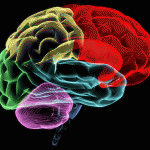
Video games make older adults feel more in with the younger generation. Image: Shutterstock
Video games are proven to promote healthy ageing.
Teens have been using the excuse that video gaming builds eye-hand coordination and memory for years, and it looks like there may be some truth behind these justifications.
The rise in the number of older adults in society has created a growing need for innovative approaches to deliver healthcare services. Researchers suggest that older adults desire to remain living independently in their own home, therefore delivery of healthcare services needs to be community-based and, where possible, utilise technologies that can fit into the everyday lives of older people.
Research provided by the Games of Health Journal shows that exergames — an activity that combines exercise with electronic game playing — have significant benefits for older adults by providing cognitive stimulation and a source of social interaction, exercise, and fun.
According to the World Health Organisation’s International Classification of Functioning, learning digital games can influence both older adults’ health condition — considering health in a wide, biopsychosocial perspective — and their ability to carry on activities in their own environment, promoting functionality and preventing disability.
“The elderly often forsake their lifelong activities in exchange for the safety, security, and care of institutional living,” says Dr Bill Ferguson, editor-in-chief of Games for Health Journal. “This trade-off need not require the sacrifice of physical activity and fitness. Furthermore, video games offer an escape from routine. All of these benefits can improve the well-being of elderly adults.”
The Wii, a popular “˜motion game’ has been proven to improve balance, coordination and strength within just a few short sessions of use and could potentially prevent falls — a serious concern among older users. Studies show that video games that encourage physical activity also help with cognitive vitality, which is essential for healthy ageing. Educational games could potentially support and enhance the ageing brain; after regularly using exergames subjects had improved reasoning, retrieval and attention.
Video gaming has also proven to help with depression, sense of place and relevancy among the older population. After participating regularly in gaming activities, subjects commented about feeling “more a part of things.” Or feeling “more in” with the younger generation.
It turns out that our grandparents are interested in playing, especially if the video games allow them to socialise. A study conducted in Spain, The Netherlands and Greece suggests that older people prefer games with a purpose or value, providing educational or cultural benefit.
This research will be used to encourage and enabling healthier lifestyles through games, which will potentially result in greater availability and lower cost of health care for people who actively manage their own health and well-being.
“The growing breadth and depth of research in health games will have powerful impacts on all stages of life, from infants with autism to geriatric patients wanting to extend their active lives,” says Ferguson in a press release. “These advancements will impact the nature and availability of preventive and remedial care from physicians to therapists to self-management.”







William
April 29, 2012
And all those years my parents told me that video games wouldn’t do me any good. Perhaps I will need to buy THEM a Wii now and tell them to “go play inside and get some exercise.”